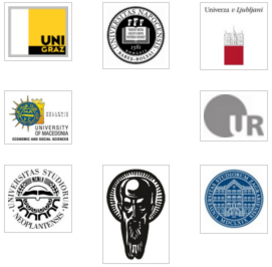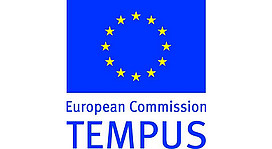End of this page section.
Go to overview of page sections.
Begin of page section: Additional information:
End of this page section.
Go to overview of page sections.
Joint Master Degree in History of South-Eastern Europe
Begin of page section: Contents:
Module 1: Theory of History
| Contents | Courses offered within the module deal with a selection of theoretical topics relating to history, the science of history and historical anthropology without an obligatory focus on South-Eastern Europe. |
|---|---|
| Objectives | You will acquire the ability to understand and approach history as the study of historical processes and cultural narratives as well as to familiarize yourself with models and methods that can be used to analyze and scientifically work on these processes. The competences gained in this context will be essential for writing your master’s thesis and taking the final master exam. |
| Methods | Through lectures, the reading of specialized texts and discussions, you will learn not only to understand theoretical questions but also to develop and phrase them yourself. |
Admission requirements | None |
| Frequency | Courses within the module will be offered so as to ensure that the module can be finished in the course of two semesters. |
Module 2: (Basic Module) History of South-Eastern Europe
| Contents | Within this module you will be confronted with fundamental elements and their interrelation as well as with the basic principles of documentation of the history of South-Eastern Europe (see archives, oral history narratives, ethnographies etc.) and its embedment into larger regional/areal contexts. A particular focus will be topics concerning the interrelation between space and time and their importance for and influence on the present. |
|---|---|
| Objectives | You will acquire the ability to understand and approach history as the study of historical processes and cultural narratives as well as to familiarize yourself with models and methods that can be used to analyze and scientifically work on these processes. The competences gained in this context will be essential for writing your master’s thesis and taking the final master exam. |
| Methods | Whereas the basic course in the module serves as an introduction to the study field in general, the course on source study and research will acquaint you with passive approaches to selected sources about the history of South-Eastern Europe but also actually endow you with the skills necessary to actively work with the sources. The exercise functions as a consolidation of practical skills through a confrontation with selected questions which require you to do small tasks and to present and discuss results. |
Admission requirements | None |
| Frequency | Courses within the module will be offered so as to ensure the module can be completed within one semester. |
Module 3: Topics of the History of South-Eastern Europe
| Contents | Selected topics about the history and historical anthropology of South-Eastern Europe are covered. |
|---|---|
| Objectives | Following the completion of the basic module, this module will expand your knowledge acquisition and skills which are essential to independently formulate and work on tasks and questions in the field. You will gain professional competence which is a prerequisite for the supplementary module, methodological competence resulting from dealing with diverse questions and tasks, social competence due to the experience of working together in groups as well as personal competence based on the requirement to repeatedly give presentations and have them evaluated in class. |
| Methods | The module consists of a mixture of knowledge acquisition, research and presentation and discussion of results, taking into account theoretical questions. |
Admission requirements | Successful completion of the basic module. |
| Frequency | Courses within the module will be offered so as to ensure the module can be completed within one Semester. |
Module 4: (Supplement Module) Questions concerning the History of South-Eastern Europe
| Contents | You will deal with topics in the history and historical anthropology of South-Eastern Europe which will help you consolidate the knowledge and skills gained in the other modules, topics relating to comparison, especially with neighbouring regions/areas (Central Europe, Eastern Europe, the Caucasus, the eastern Mediterranean), topics in connection with relevant sources and specialized literature as well as theoretical-methodological questions. |
|---|---|
| Objectives | This module will consolidate the knowledge and skills gained in the previous modules, especially with a view to providing support for the master thesis. A major focus will be questions concerning the ability to place and see scientific results in a framework of transdisciplinary relations. The competence gained will consist in the professional competence which is a prerequisite for writing a master’s thesis and taking the final master exam, methodological competence resulting from dealing with diverse questions and tasks, social competence due to the experience of working together in groups as well as personal competence based on the requirement to repeatedly give presentations and have them evaluated in class. |
| Methods | The module consists of a mixture of knowledge acquisition, research and presentation and discussion of results, taking into account theoretical questions. |
Admission requirements | Successful completion of the advanced module |
| Frequency | Courses within the module will be offered so as to ensure that the module can be completed within the course of two Semesters. |
Master's Thesis and Defence
| Master’s Thesis | The Master's thesis is based on research related to a subject of your choice. The thesis topic must be determined in consultation with the academic advisor by the end of the second semester. The Master's thesis involves a large number of academic activities such as formulating a research objective and a research question after surveying literature, sorting, interpreting and snythesizing information, collecting and analysing observations and presenting a substantial written report of the findings. |
|---|---|
| Defence | The presentation and defence of the Master's thesis has to be taken on the compulsory subject of History of South-Eastern Europe (a focus on the Historical Anthropology of South-Eastern Europe is also possible) as well as on one of the historical subjects chosen in the restricted elective. The oral examination in two subjects will be taken before an examination board. |
End of this page section.
Go to overview of page sections.
Begin of page section:
Contact
Coordinationjointdegrees(at)uni-graz.at
End of this page section.
Go to overview of page sections.







